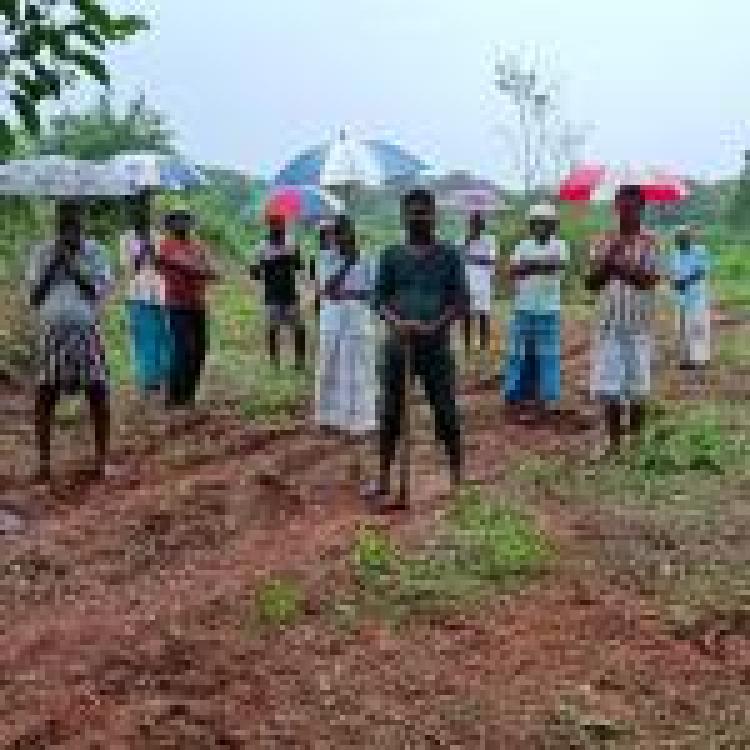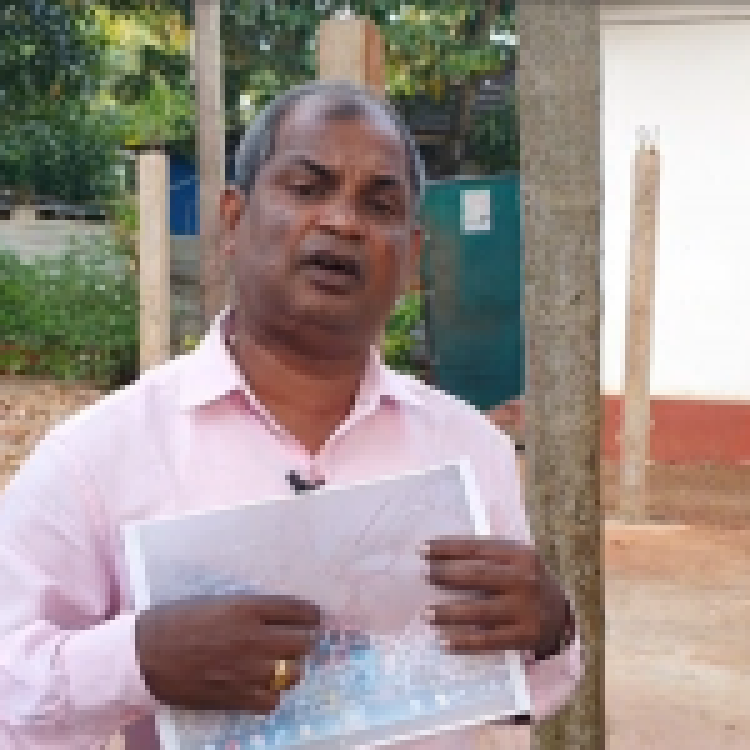.jpeg)
Residents of Palaly, Jaffna, engaged in a postcard campaign demanding the immediate release of their lands which have been under Sri Lankan military occupation for over 30 years.
The campaign titled “Give us back our land” was organised by the Mannar Social Economic Development Organisation (MSEDO) in Maviddapuram, Palaly last week.
.jpeg)
The postcards are addressed to President Ranil Wickremesinghe and are an attempt to attract his attention to a longstanding issue faced by Tamils in the homeland. All of these lands, according to MSEDO are privately owned but currently held by the Sri Lankan army and airforce.
“For the last 34 years, our lands bordering the airport have been held onto by the military. We’ve gone to countless places and people asking for it back,” one of the residents said. “We are poor, and we are pleading with you once again, take whatever other lands you want, but don't take the ones that belong to the poor.”
Another one of the residents says she has been languishing with her two children from place to place with no permanent home, despite having land to call her own.
“We pluck the mangoes from our land and sell them on the street so we can live by,” she said, “We ask that these lands be returned to us.”
For this campaign, 5000 postcards were filled out and posted by residents. A similar campaign was held a few weeks ago where Tamils from Mannar, Nanaddan, Musali, Manthai West, and Madhu sent 5,000 postcards to Wickremesinghe demanding the return of their land which which are being used by the military for agricultural and commercial purposes.
.jpeg)
According to some residents, out of 6000 acres, they had been given 3000 acres based on the assurance of Wickremesinghe. However, out of this 3,000 the government, particularly the Ministry of Aviation, has been trying to grab hold of 500 acres.
The military occupation across the North-East has led to many Tamils being displaced from their land. The number of military land grabs of Tamil lands, the erection of Buddhist viharas in Tamil and Muslim sites, and the military-owned businesses operating across the Tamil homeland have substantially increased the end of the armed conflict. As a result, Tamil people’s livelihoods have been largely impaired.
.jpeg)


